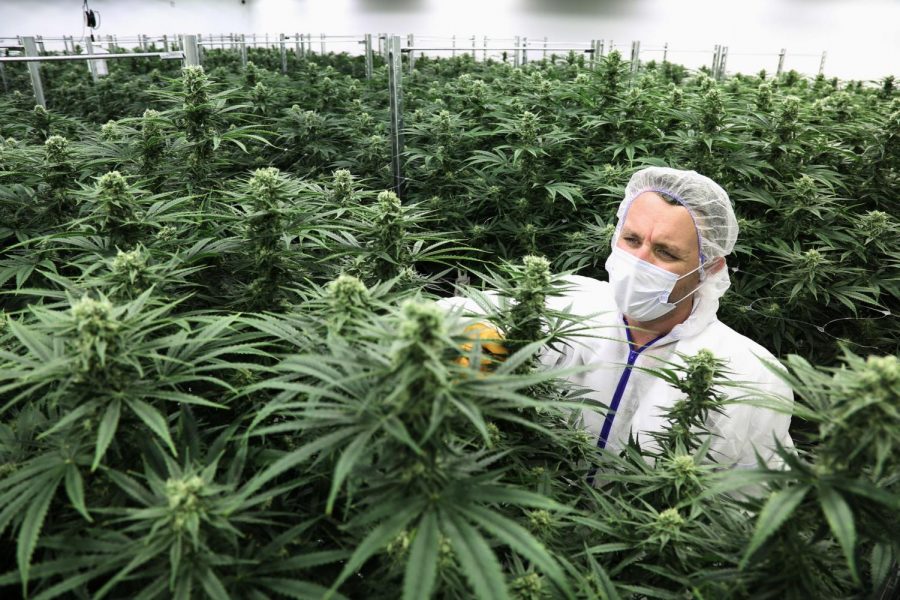NJ’s Recent Legalization of Recreational Marijuana Use
January 19, 2021
The legalization of marijuana was approved in New Jersey after nearly two-thirds of citizens voted in favor of it on the ballot question this past election. The election decided that marijuana will be available for purchase by adults over the age of 21 for recreational purposes. Legalization has been one of Governor Murphy’s campaign promises; however, despite widespread support, it had struggled in Legislature earlier this year. Now, lawmakers have to pass bills to lay out the groundwork for the usage of recreational marijuana. After much debate, two bills have been passed by lawmakers in response: one that decriminalizes marijuana possession and one that regards the marijuana industry and legalizes personal consumption. Though the marijuana bill was supposed to go into effect on January 1st, 2021, difficulty in Legislature has delayed this process and Governor Murphy has yet to sign the bills. When approved, it will be one of the most progressive decriminalization bills in the nation. For context, decriminalization means that criminal sanctions against marijuana usage within limits will be lifted.
With this new bill, adults over the age of 21 will be able to possess up to six ounces of marijuana without facing any criminal or civil penalties. In addition, first offenses for selling marijuana will be decriminalized as well. Possession of psilocybin mushrooms or magic mushrooms is also being reduced from a third-degree crime to a disorderly person’s offense. Currently, New Jersey citizens are allowed to possess up to one ounce of marijuana or five grams of hashish.
New Jersey has one of the highest marijuana arrest rates in the country. In addition, there’s a disproportionately high arrest rate for black people compared to white people, despite their similar usage rates. This introduces another goal for legalization: to deliver social justice to black and brown communities that have been harmed by the war on drugs.
Lawmakers aim to create a booming marijuana industry to undermine the black market, particularly so that the government can get sales tax revenue. Marijuana will have a 7% sales tax, according to the bill. 70% of that tax will go to help these communities harmed by the war on drugs to help with legal aid, health care, mentoring, and more. The social justice aspect of the bill was brought to light by members of the Black caucus and assembly. The need for a social equity revenue return was a reason for delays in the bill passing process. In addition, the marijuana industry can create new jobs, which would boost the economy amid its current crisis.
Those that oppose marijuana legalization bring up the concern for an increase in drug addiction and rehabilitation. Alcohol and tobacco, which are both legal to consume, are the cause of many health problems. However, while excessive alcohol usage kills 88,000 in the U.S. annually, there have been no recorded cases of death from a marijuana overdose. In addition, marijuana is not technically regarded as being addictive. People can become dependent on it, but marijuana itself is not addicting. In fact, studies have shown that crime goes down in areas where marijuana is legal. Decriminalization also frees up space in jails and saves the government time and money. This time and money can be spent on social justice and equity for marginalized communities for further crime prevention.
New Jersey lawmakers argue that drug reform can help people and communities get the help that they need. Additionally, they say that consumers are safer when they buy government-approved marijuana because of the rigorous safety testing it undergoes. Pro-legalization lawmakers argue that the legalization of marijuana prioritizes safety, protection, and civil justice for its citizens.
